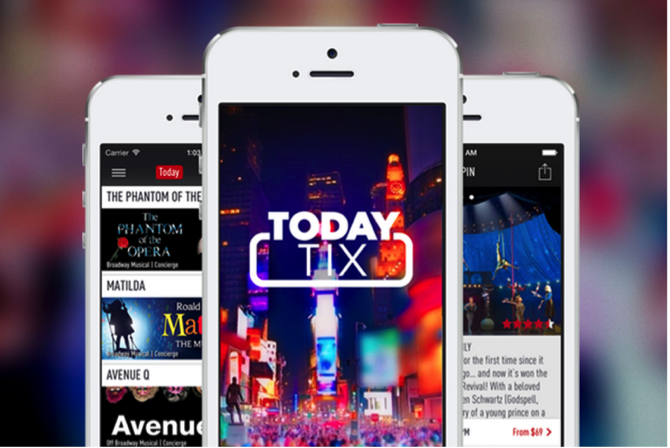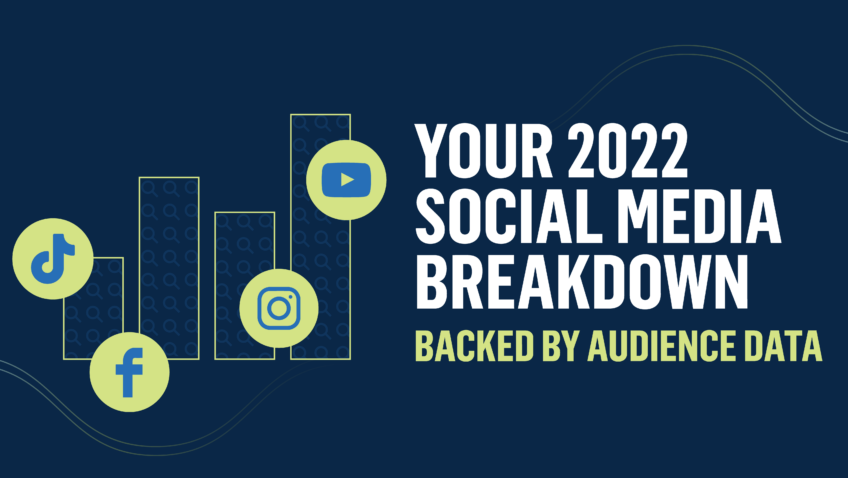5 Reasons Not to Build an App
Gone are the days of wondering if your organization needs either a mobile optimized website or a mobile app.
We have all cast our vote through our smartphone usage and the data shows that we interact with mobile web and mobile applications in different ways. Depending on your business, you may need one or both.As consumers, we spend more time in mobile applications than we do on desktop web. This has been true since early 2014, according to ComScore. In fact, we spend 88% of our mobile time in mobile apps and 12% of our mobile time on mobile websites. It sounds shocking at first but take a moment to reflect on your own mobile usage. What apps do you use often that could be driving that 88% figure? That’s right – social media, email, gaming, and video apps.
When the user experience is good, we, as consumers of mobile technology, prefer to engage with apps over mobile websites. It sometimes helps marketers to think of their mobile web presence as an acquisition vehicle and a vehicle for one-off customers to transact. This is the reason you should be mobile web optimized before considering an app – unless you are a new-to-market, mobile-only business. Mobile apps, on the other hand, are for your loyalists. They invest the time to download your app and the real estate on their smartphone display because they want to come back to you time and time again.
Apps as Marketing Vehicles
Getting your app onto someone’s phone is like getting your card into their wallet. You have the opportunity to extract additional customer lifetime value (CLV) from that person. There are several apps doing this right in the arts world.
Take for instance TodayTix.

TodayTix has been a mobile first company from the beginning and they are constantly improving to meet user needs. They release app updates every couple of months which not only improve the app, but also assist with user engagement. Users love it—I’m not sure I’ve ever seen an app with so many 5-star reviews. The app also has features integrated that really capitalize on what an app can do that mobile web can’t (or doesn’t do as well) like mobile ticketing.
Museums also have an opportunity to capitalize on apps because apps give visitors a companion to experience the museum while they are there. The app is an extension of the artwork. Museums like the Guggenheim and Brooklyn Museum are going as far as integrating location-based beacon technology into their apps to enrich the museum experience via mobile. Check out this article on some great museum apps and this article on the realities of implementing beacons as an arts organization.
Apps are wonderful marketing vehicles for your loyal base assuming you deliver to the user’s expectations on user experience. Too many crashes, delays, or freezes and a user is likely to delete your app and never download it again. When you build an app, keep in mind these 7 reasons a user might delete your app before creating an app.
Why Not To Build An App

I love mobile apps. I dedicate my work to ideating, building, and optimizing mobile apps for companies. But this doesn’t mean that every business needs one. Here are 5 reasons organizations should not build mobile apps:
Reason #1: Don’t Build an App When You Only Have the Budget for 1 Release
Apps must be considered as an on-going budget item, not a one-time investment. Successful apps, in my experience, are updated 4-8 times per year. If you don’t update, bugs will be introduced over time degrading your user experience. If the bugs are enough of an interruption to the user, the user will delete the app and never come back again.
Reason #2 Don’t Build an App When You Only Have A Couple Things for the User to Do
You must have a use case for your app that makes the user come back daily, weekly, or monthly. Your app also needs to constantly evolve to meet the user’s needs through the introduction of new or improved features. Think of sporting apps like the U.S. Open mobile app for tennis fans. These apps are used heavily during the competition and not so much during the rest of the year. Playoff-based sporting apps like these are trying to uncover ways to remain relevant to their users year-round.
Reason #3 Don’t Build an App When The User Only Needs it Once
In the early days of apps, marketers obtained a budget for campaign based apps – an app built just to engage with a limited-time marketing campaign. On the whole, these apps were expensive to build and didn’t have a shelf life beyond the campaign. Apps must give the user a reason to come back time and time again. It’s the marketing team’s job to ensure the users are driven back to the app experience to engage with the brand.
Reason #4 Don’t Build an App When it provides no improvement upon your mobile website
An app that does exactly what your mobile website does is a waste of time. The app is effectively serving as a web bookmark. Users prefer apps because of the natively coded advantages – like personalization through persisting log in, access to exclusive content, and easy, one-click checkout.
Reason #5 Don’t Build an app When you don’t have the marketing team to support it
Similar to reason #1 – don’t build an app without the budget to support it – don’t build an app without the marketing team to support it. Just like a website, app content needs to be constantly refreshed and, for best success, personalized to users. This means the use of multiple CMS tools to maintain assets, understanding analytics, etc.
Be a Smart Mobile Marketer
Building an app for the sake of building an app is a terrible reason to invest in one. However, when apps serve specific use cases for loyal customers, they can be incredibly successful and unlock additional revenue. Determine if you have an app use case for your customers and go from there to ideate a mobile app experience. Remember – mobile app investments may not always be consumer facing. There may also be apps that would streamline your business processes – like a 3rd party ticket scanning app – but aren’t publicly distributed in the app stores.
It’s fun to dream up new app ideas. I encourage everyone to do so. As you do, just be cognizant of the don’ts above!
Digital Marketing Boot Camp for the Arts is October 19-20 in NYC. Check out Kim Rust’s Boot Camp session from 2015, Mobile Matters.









